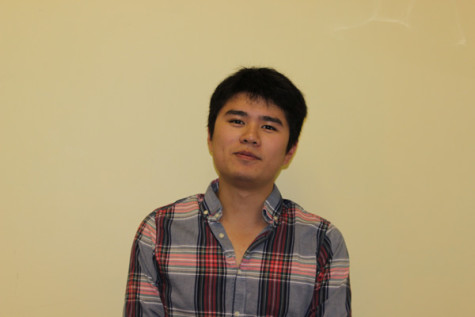Light materialized in a classroom once again along with strident sounds of papers and books being hastily put away as a class was dismissed.
Students shuffled out, many overwhelmed by what they had just absorbed and astounded by the instructor’s knowledge of their own religions.
This class was History of Christianity, taught by Robert Matson.
Matson is a Pitt-Johnstown history professor who also has taught several religion classes. Besides requiring students to buy the Quran and the Bible for his classes, he also requests students to attend worship services.
Matson, however, has also thought of students who may feel uncomfortable attending services outside their religion.
“I actually gave them an option that if they are uncomfortable going to a worship, they can actually look on a television. But I still want them to see church buildings, because that is simply their field work.”
Matson’s class is not to influence student’s religious beliefs but to educate them on religion. Some students write negative assessments on their reflection paper assignment.
“They’ll go and come back and their reaction will be very negative. They will write their paper criticizing how wrong these people are,” Matson said.
“It’s all right to think that, but it’s not the point of the assignment. So I would say most students say they liked (attending services), it helps, and it takes the class out from just philosophical and puts it out to real life.
“Because we are studying a subject that is going on around us, if it runs into a little friction or it makes somebody uncomfortable, I’m not afraid of that. I think that’s good because it stimulates them to learn.”
Matson recalled an account of one of his older student’s reflection after attending a service of another sect of Christianity.
“I had one very evangelical Protestant one time who went to a Catholic mass, and wrote a whole essay saying how these people are lost, they were going to hell, and he felt so bad about it.”
Thomas Barefoot, a history major enrolled in the History of Christianity class, concurred with Matson’s methods.
“I think (attending services) is helpful,” said Barefoot. “(If) you want to learn about Christianity, historically, you need to get down to the nitty-gritty of what they do. You can take in all these textbooks, but you are never going to have any experience.
“It’s the same way if you say you want to learn about French history and have ever been to France. You got to go and actually see the society. It’s the same way,” he said.
“If you want to learn about society, you have got to move from your version of Christianity. You have to experience what Protestants do, what the Catholics do, what the Eastern Orthodox (followers) do.”
Matson also said that students’ responses were mostly that they did not understand what they saw, hence his approach to have them attend services.
“Because they don’t realize the diversity that exists.
“When I do the world religions, I ask students to purchase the Quran. I have a lot of Qurans.”
Matson pointed at a bookshelf behind him, where several of his collections — of all sizes and colors – rested.
“But you get a lot of the self-important people, bloggers and media personalities; they are full of authorities over what Islam is. Have any of them actually opened a Quran? So I tell (my students) in class, take your Qurans out and we’ll look at it.
“When we’re done with this class hour, you’ve already read more of the Quran than most Americans.
“I try to handle (the situation) very delicately and say, at least know what’s in there. It is to be informative.”

